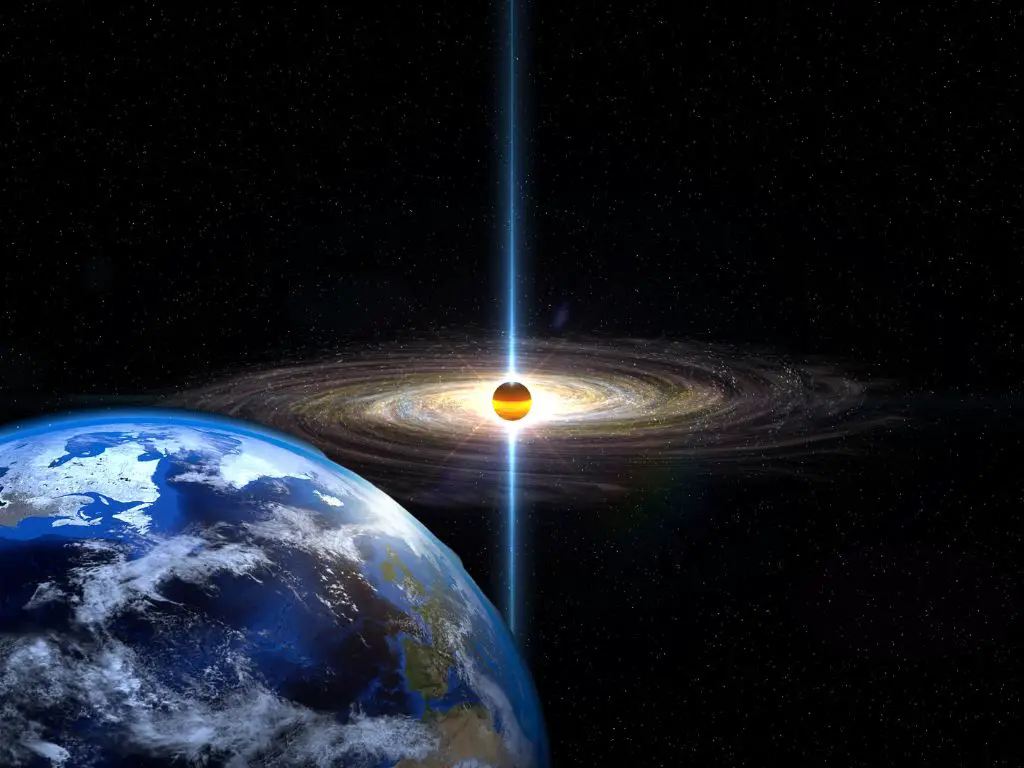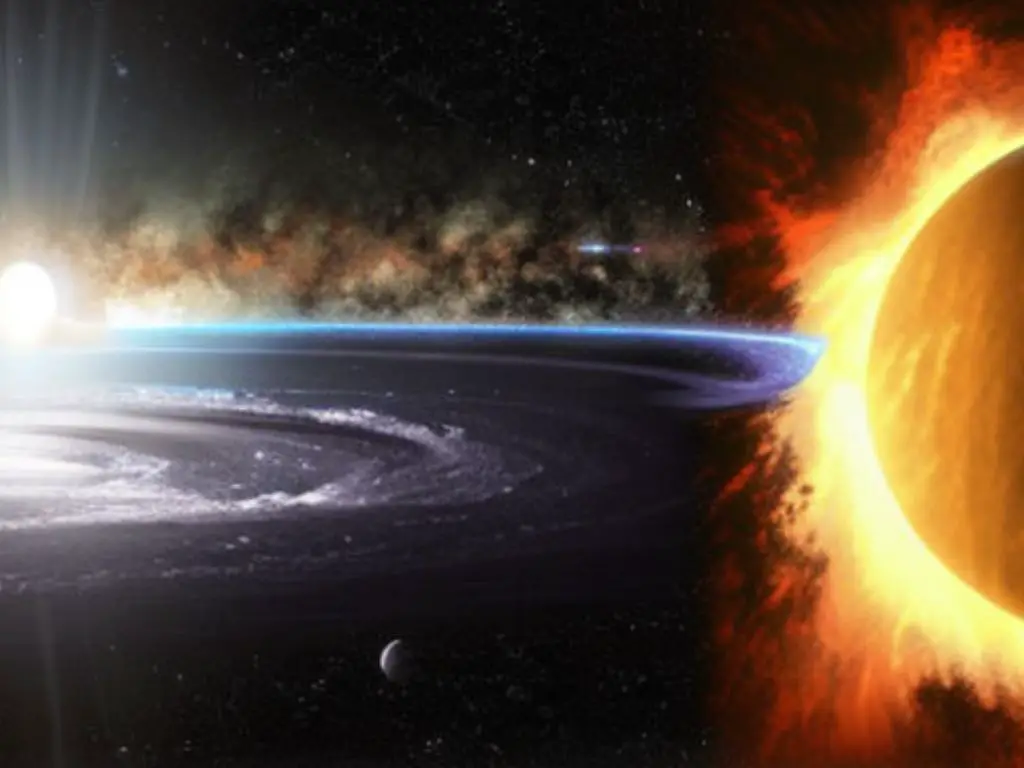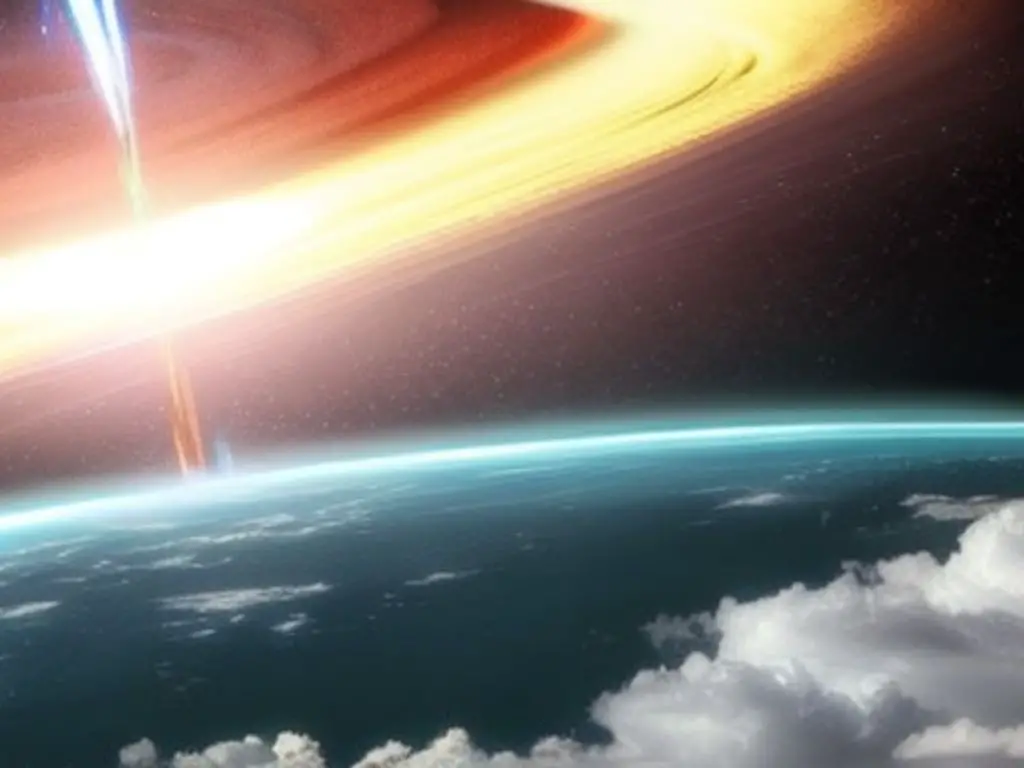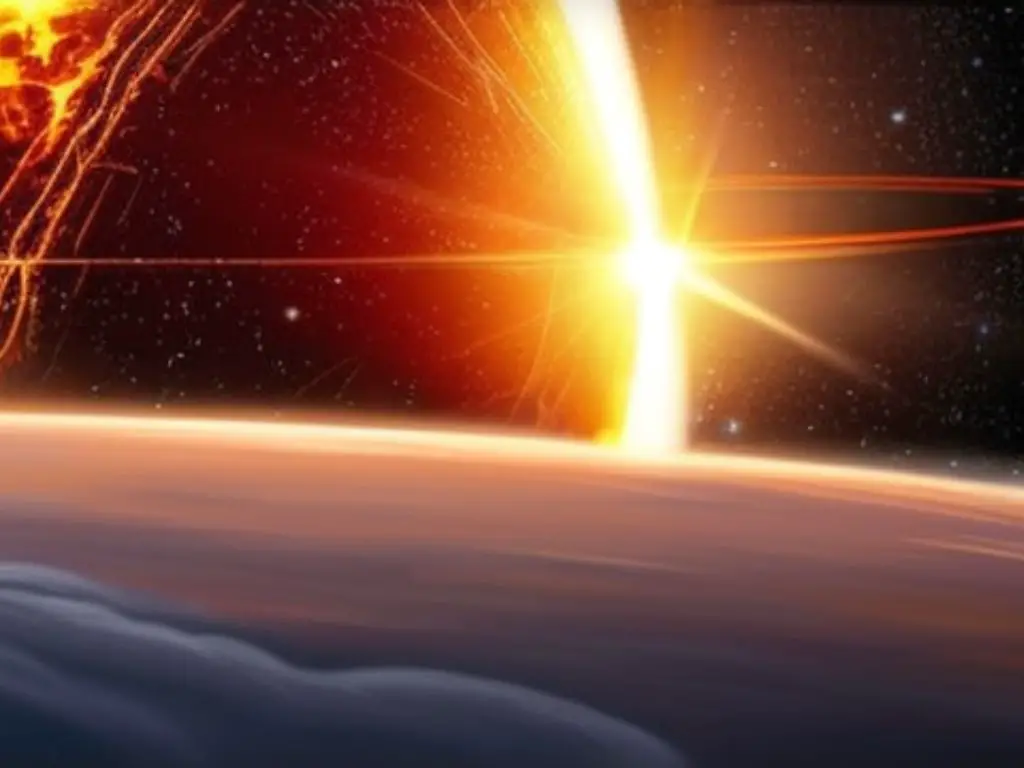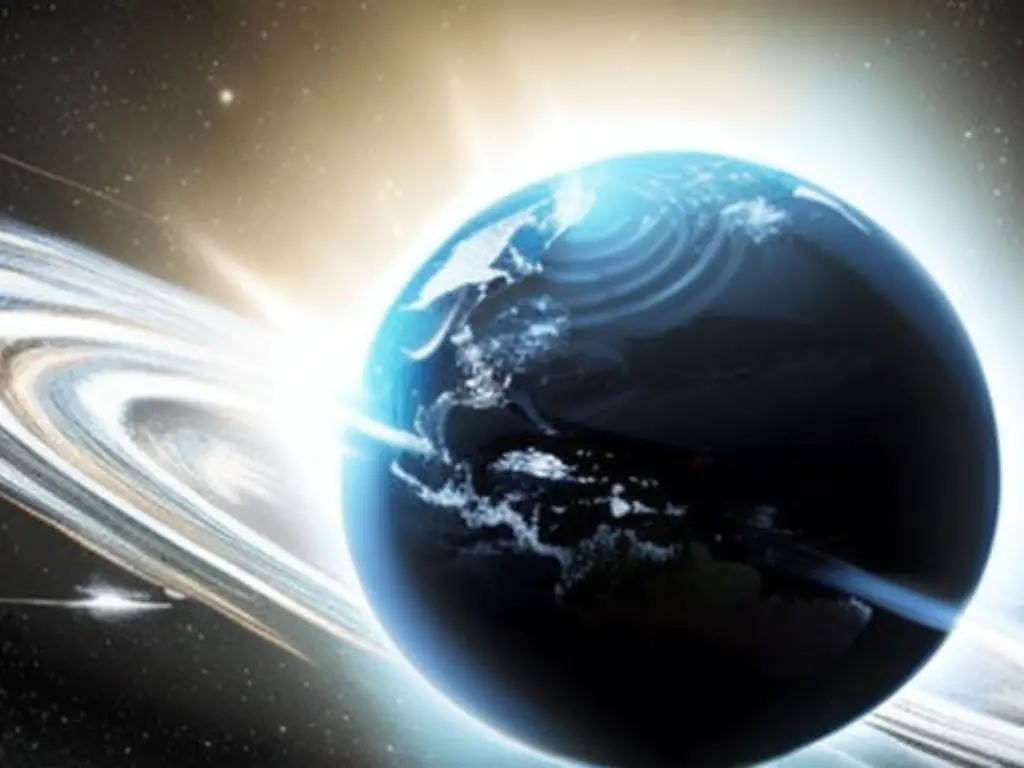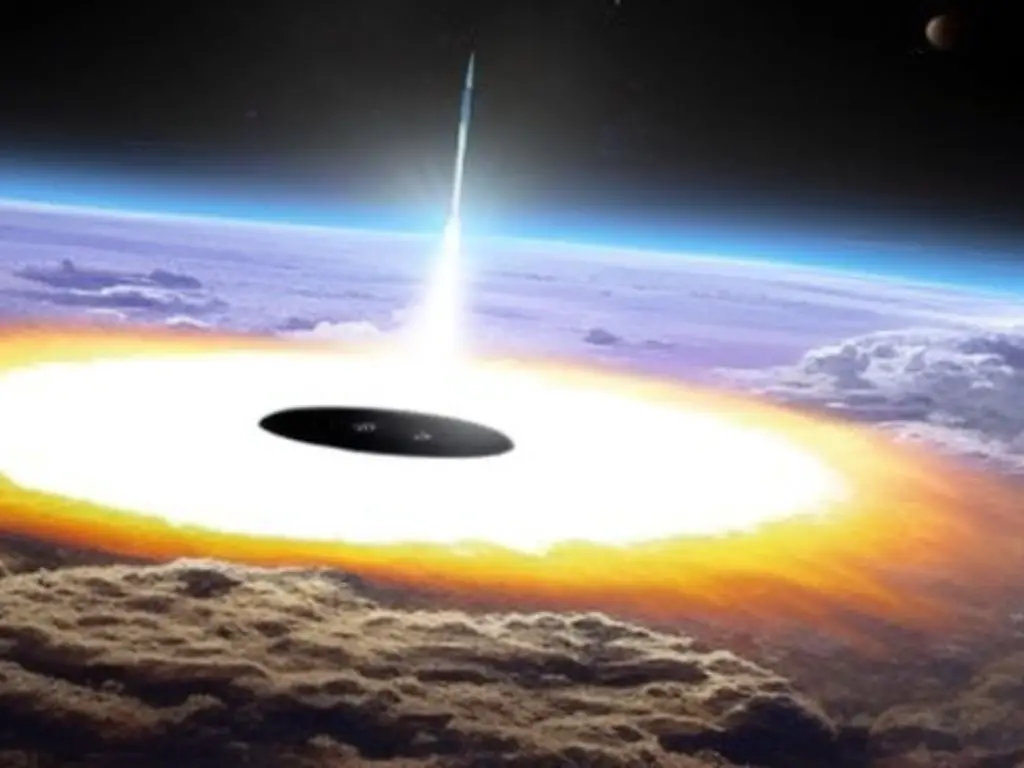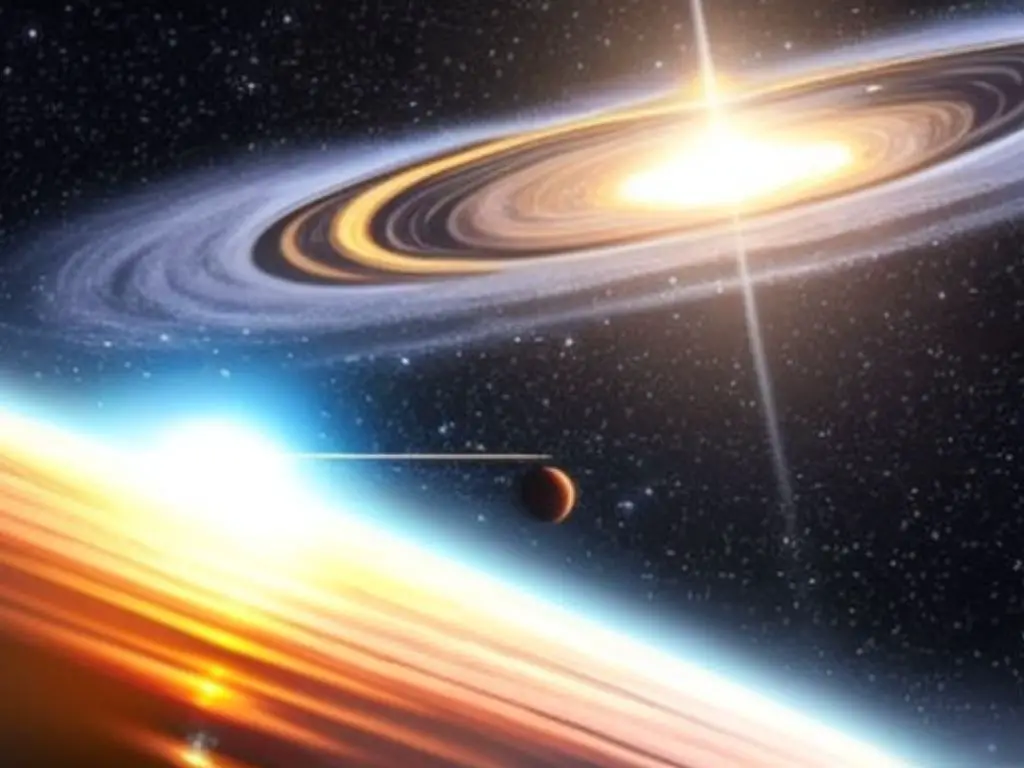Black holes are fascinating and mysterious objects that have captured the imagination of scientists and the general public alike. These extremely dense regions of space have a gravitational pull so strong that nothing, not even light, can escape once it gets too close. But could a black hole ever come close enough to Earth to pose a threat to our planet and its inhabitants?
When will a black hole hit earth
First, it’s important to understand that black holes are not like meteors or asteroids that could collide with Earth. They are typically formed from the collapse of massive stars and can be found throughout the universe. However, they are usually very far away from us. The closest known black hole to Earth is V616 Monocerotis, which is located about 3,000 light-years away.
Even if a black hole were to come close to our solar system, it is highly unlikely to hit Earth directly. This is because the gravitational pull of the black hole could potentially disrupt the orbits of the planets, but it would take an extremely massive black hole and an incredibly precise trajectory to cause a collision with Earth.
What is the chance of a black hole hitting earth
Furthermore, there is no known black hole currently on a collision course with our solar system. Astronomers constantly monitor the movements of objects in space and can predict potential collisions with a high degree of accuracy. Therefore, based on our current understanding of the universe and the movements of celestial objects, it is highly unlikely that a black hole will hit Earth.
When will a black hole hit earth 2023
That being said, there are some hypothetical scenarios where a black hole could pose a threat to Earth indirectly. For example, if a black hole were to come close enough to the solar system to disrupt the orbits of the planets, this could have catastrophic consequences. But such an event would be extremely rare and would require a black hole with a mass much greater than any currently known.
Another most likely scenario would involve two stars orbiting close together in the same galaxy as Earth. If one of these stars were to collapse into a black hole, its gravitational pull could cause the other star’s orbit to become unstable and eventually spiral towards our planet at tremendous speeds—potentially leading up to an apocalyptic event if it were large enough or close enough upon impact.
However, this type of cosmic collision would be incredibly rare given the vastness of space and distances between objects within galaxies. Therefore, such an occurrence is highly unlikely in any foreseeable future timeframe on human timescales (e.g., thousands or millions of years).
In addition, some scientists have theorized that rogue asteroids from outside our solar system may also contain small amounts of dark matter which could form mini-black holes upon entering our atmosphere—but again this possibility remains largely speculative without concrete evidence thus far proving otherwise.
If a black hole hit earth
A black hole hitting Earth is an extremely unlikely scenario, and it’s not something that we need to worry about in the foreseeable future. However, here are some of the potential consequences that could occur if a black hole were to hit Earth:
Disruption of Earth’s orbit
The strong gravitational pull of a black hole could potentially disrupt the orbit of the Earth around the sun. This could cause the planet to move closer or farther from the sun, which would have significant effects on the planet’s climate, seasons, and overall habitability.
Destruction of the Earth
Depending on the size and mass of the black hole, its gravitational pull could be strong enough to literally tear the Earth apart. The planet would be stretched and ripped apart into smaller pieces, which would then be pulled towards the black hole.
Formation of an accretion disk
As matter from the Earth is pulled towards the black hole, it would heat up and emit radiation. This could create an accretion disk around the black hole, which is a disk of hot gas and dust that spirals around the black hole as it is pulled in.
Gravitational waves
The collision between the black hole and Earth would generate gravitational waves, which are ripples in the fabric of space-time. These waves would propagate outwards from the collision and could potentially be detected by gravitational wave observatories.
Destruction of the solar system
Depending on the trajectory of the black hole, its gravitational pull could also disrupt the orbits of the other planets in the solar system. This could lead to a catastrophic chain reaction that could destroy the entire solar system.
The likelihood of a black hole hitting Earth is extremely remote, and these scenarios are purely hypothetical. While black holes are fascinating and mysterious objects, they are typically very far away from us, and there is no known black hole currently on a collision course with our planet.
In conclusion, while black holes are fascinating objects that can inspire awe and wonder, they are not something that we need to worry about hitting Earth. The chances of a collision are extremely remote, and astronomers are constantly monitoring the movements of objects in space to ensure our safety. So, we can continue to enjoy the wonders of the universe without fear of a black hole bringing our world to an end.

